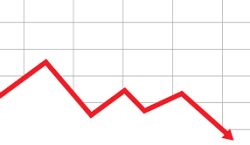


 A LARGE number of quoted companies could delist this year as the wider macroeconomic environment remains dire, with the government’s fiscal policy announced in December failing to lay out a strong foundation for economic recovery.A total of 11 companies delisted from the Zimbabwe Stock Exchange (ZSE) last year due to liquidity challenges that resulted in companies failing to raise money on the local bourse and attracting new investors to inject fresh cash.
A LARGE number of quoted companies could delist this year as the wider macroeconomic environment remains dire, with the government’s fiscal policy announced in December failing to lay out a strong foundation for economic recovery.A total of 11 companies delisted from the Zimbabwe Stock Exchange (ZSE) last year due to liquidity challenges that resulted in companies failing to raise money on the local bourse and attracting new investors to inject fresh cash.
A significant number of the delisted firms failed to meet the minimum listing requirements, an indication that the volatile climate that has dogged the ZSE since dollarisation in February 2009 was deepening.
Industrial counters, Apex Corporation, Cairns Holdings, Celsys, Chemco Holdings, Interfresh, Gulliver, Interfin, Lifestyle Holdings, Phoenix Consolidated, Steelnet and financial services firm, Trust Holdings delisted last year.
During the first week of January, PG Industries was suspended from the local bourse for failing to meet ZSE requirements due to a difficult operating environment.
Analysts say the current ZSE capitalisation was undervalued. This was a factor of the low valuation for listed companies which were consequently failing to raise meaningful funding to remain viable.
Economic commentator, Eric Bloch, said the de-listings signal an ailing economy, adding that the current trend might rattle investors by raising worries of the same ordeal befalling other listed counters.
“The delisting will not have much of an impact on the exchange and investment in general but affect a few investors who might worry of possibly the same happening on other listed companies,” he said.
In fact, quoted entities have found it difficult to convince investors to inject large amounts of capital when valuations using market benchmarks reflected a lower net worth to the firm’s potential, intrinsic and asset value.
Listing interest among local companies, which characterised the domestic bourse before the decade-long crisis crept into the market in 2002, has disappeared.
In its place is growing apathy to the bourse, with several firms having delisted from the ZSE, which has only witnessed, over the past six years, reverse-listings.
There was TN Financial Holdings Ltd which reverse-listed through Tedco Ltd. Then there was Interfin Holdings Limited’s reverse listing through CFX Financial Services. Crocodile skin processor, Padenga Holdings, was unbundled from Innscor Africa and listed by way of a dividend in specie.
The listing drought on the ZSE is despite reports of interest by several companies, particularly foreign-owned firms seeking to comply with the country’s indigenisation law, to list on the Zimbabwean bourse. The ZSE last had an Initial Public Offering in 2007 when Zeco Holdings listed.
Apart from a series of unbundlings that saw Dawn Properties, Red Star Limited, Zimbabwe Property Investments and Pearl Properties Limited being listed in the last 11 years, new listings have been as rare as snow in this part of the world.
Analysts say a combination of bad policies such as indigenisation have not played in favour of the bourse.
The tight liquidity situation has consequently affected the level of activity on the ZSE with mostly foreign investors accounting for the majority of trades, meaning the bargaining power of sellers was greatly weakened.
Economist, Brains Muchemwa, said most companies were delisting in order to restructure their “septic” debts.
“Companies are restructuring because of the debts they have and to reshape their business models to try and overcome the prevailing economic challenges,” he said.
“Some are doing so to grab opportunities that would have emerged. It is easy to raise more money when not listed because a company would not be subject to regulations that are associated with listed companies,” Muchemwa said.
Interfresh chief executive officer, Lishon Chipango, whose company was the last to delist from the ZSE on December 31, 2013, said: “At the moment for us there is not too much (gains from listing). If you look at the contextual framework of the stock market, one of the benefits of being listed is to raise capital, but if you raise capital when the shares are so depressed you are not going to raise that much. So the issue of benefitting if listed maybe down the road. (I) would not be surprised if others followed (us by delisting),” he said.
“The other aspect is there is no money in Zimbabwe. All the capital being raised is external. For us, it is not attractive,” Chipango said.
He highlighted that the delisting was necessitated by the discounted rate at which the company’s shares were trading, which made it difficult for them to raise capital.
“The rights issue to raise the US$3 million early last year caused a dilution of 75 percent because we used stock market valuations. Now if at that time we had raised money using Net Asset Value instead of stock market the dilution would have been 15 percent. You see why we are running away from the stock market. We are running away from the stock market valuation,” said Chipango.
Since the economy was formally dollarised in February 2009, almost all rights issues by listed companies have failed to attract significant support.
Most were undersubscribed. These include OK Zimbabwe, NMBZ Holdings, MedTech, Art Corporation, Nicoz Diamond, African Sun, Fidelity, the collapsed CFX Financial Services, Interfresh and FBC Holdings.
newsdesk@fingaz.co.zw